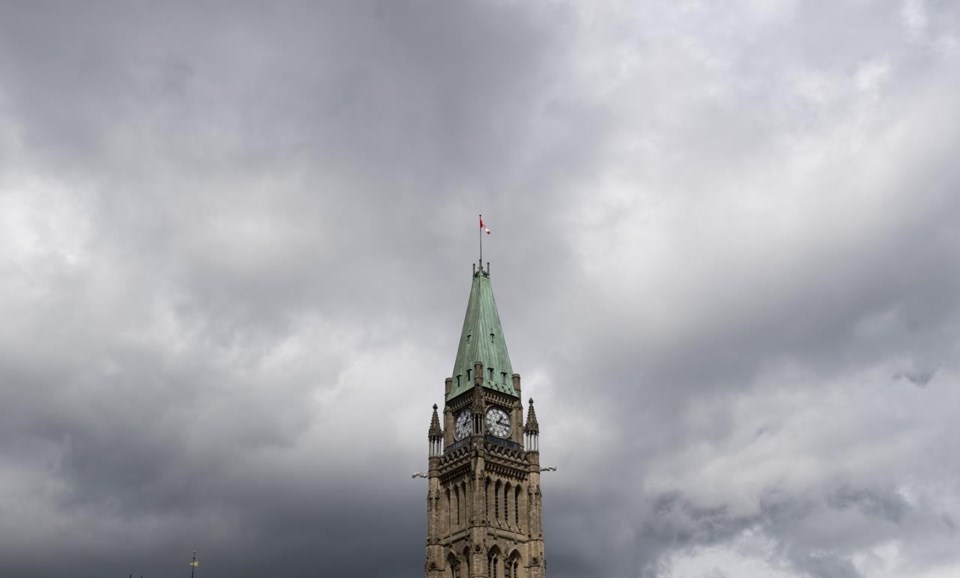OTTAWA — The Liberal government's controversial online-streaming bill was back in the upper chamber on Tuesday, with one senator who had earlier opposed it saying she expected it to pass.
After more than a year of debate and revisions, Alberta Sen. Paula Simons said she would really like to see Bill C-11 "done and dusted" this week, and not because she wants to ram it through.
"For all the cynicism about the Senate, I think the Senate showed its merits with this bill," Simons said in a recent interview. "And I think we did a really good job of debating and discussing it."
Quebec Sen. Marc Gold, the Liberal government's representative in the Senate, said "the finish line is in sight" after he introduced a motion Tuesday that asked the Senate to adopt the bill so that it can become law.
"For Canada’s cultural sector, it has been a long road and a long wait, but the finish line is in sight," Gold said.
"For many in the industry, an important source of their income is inextricably linked to the passage of this bill."
If passed, Bill C-11 would update broadcasting rules to include online streaming and require tech giants such as YouTube, Netflix and Spotify to make Canadian content available to users in Canada — or face steep penalties.
Last month, the House of Commons adopted most of the Senate's amendments, which included measures to highlight the promotion of Indigenous languages and Black content creators and a change that sought to "reaffirm" the independence and freedom of expression of creators.
Senators also tweaked the bill to ensure that funds collected from tech giants would go toward promoting diversity, equity and inclusion.
The bill was subject to especially lengthy debate in the Senate and has sparked criticism from special-interest groups and content creators who feared the bill would cause the government to over-regulate the internet.
"All the debate about this bill has been completely polluted and very well-organized by bot campaigns," said Simons, adding that she still gets hundreds of emails weekly from automated campaigns that spread false information about the bill.
"People are being sold that this is a censorship bill, or that it's like 1984. It's like Stalin. It's like Hitler. It's like the Chinese government. It's all silly," she said.
"There were significant flaws in this bill, and we've made them better."
The Liberal bill is supported by the NDP and Bloc Québécois, but the Conservatives have called it a "censorship" bill, with Conservative Leader Pierre Poilievre even holding up George Orwell's "1984" science-fiction novel about Big Brother in the House while discussing the bill.
Simons, who said she sought to quiet the firestorm of disinformation surrounding the bill, had endorsed an amendment that would have added further protections for individuals who post content online, from comedy acts to instructional videos.
She said she wanted Canadians to actually talk about what's in the bill, as opposed to giving in to "fear-mongering."
Ultimately, the House of Commons rejected the amendment, which was also endorsed by YouTube, because MPs felt it would create a loophole for tech giants to avoid contributing to Canadian content.
"Bill C-11 does not and will not apply to user-generated content because, simply put, using a social-media service does not make you a broadcaster," Gold said Tuesday.
"Rest assured, the legislation will not interfere with or stifle the expression of Canadian voices."
Because the bill isn't something she agrees with, Simons said she will not support it in the final vote. Still, she said she will cast that vote against it knowing that its passage is assured.
"At the end of the day, the government ran on this bill. It was part of their election platform," Simons said — the Liberals had promised similar legislation during their previous minority-government mandate.
"I think there's also an understanding that there are limits to how much the Senate can push back if this is a hill to die on, or if this is profound public-policy disagreement. And the government at the end of the day has to be responsible for its choices."
When the bill is passed, a policy directive will be issued to the Canadian Radio-television and Telecommunications Commission, which will be tasked with enforcing the bill's provisions.
The CRTC is also required to consult with the public, and its reports must be made public, thanks to another Senate amendment that was accepted by the House.
This report by The Canadian Press was first published April 18, 2023.
Mickey Djuric, The Canadian Press
Note to readers: This is a corrected story. A previous version misspelled the first name of Sen. Paula Simons, and erroneously reported that she would vote in favour of the bill.




